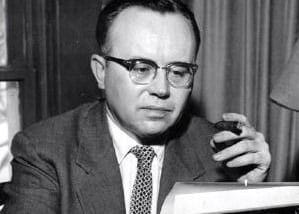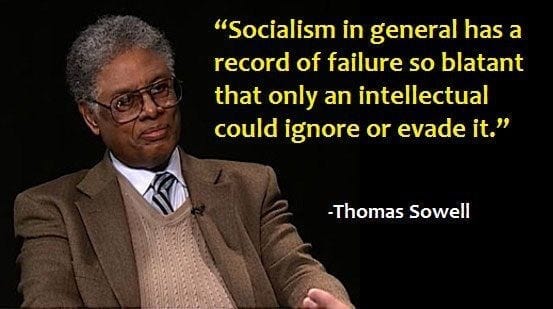Kirk and Del Noce: Two Philosophers Connected through History
Carolina Riva Posse at University Bookman

Augusto Del Noce will be a great loss to order, freedom and justice in Italy,” wrote Russell Kirk to Mario Marcolla in March 1990, shortly after the Italian philosopher’s death. Del Noce, probably the most important Italian Catholic thinker of the twentieth century, died in Rome on December 30, 1989. With his transcendent vision, Del Noce predicted the fall of Communism at the moment when many intellectuals and politicians were being seduced by it. But Del Noce is increasingly gaining relevance in our day because of his warnings on the characteristics of technocratic society and the new totalitarianism that threatens us today as Communism did the prior generation. He has captured the American educated public thanks to the translations and presentations to various audiences carried out by Professor Carlo Lancellotti.
The link in the chain that unites Russell Kirk and Del Noce is the Italian textile laborer and self-taught intellectual Mario Marcolla. Marcolla worked in the suburbs of Turin, and despite his lack of formal education became a serious philosopher familiar with the classics and developed a discriminating eye for the truth hidden by contemporary controversies.
In post-war Italy, although Communism was not in power, Marxism became culturally hegemonic. As Marco Respinti describes it, the Democrazia Cristiana was in the government, but the real influence was in the hands of communists. The Italian Communist Party (PCI) was the greatest communist party in the world, with direct connections with the USSR. An accelerated process of de-Christianization was taking place, somehow paradoxically enabled by a way of running power by the Catholics in office.
A flawed interpretation of Fascism was responsible for the expansion of an immanent mindset, associating any assertions of truth to “Fascism.” Anti-Fascism was supposed to be carried out by the enlightened liberal modernists, led by Benedetto Croce. Secularization seemed to be the way out of violence and authoritarianism. Meanwhile, Marxism was spreading an unrestricted bourgeois way of life in negation of all absolute moral values and showing its destructive force and its lack of a positive political and cultural way out of man’s alienation. A philosophical elucidation of a crisis was much needed.
Answers to Faithful Intellectual Inquiries
Marcolla proves to be faithful to a restless search for truth in his life. In his quest for a cultural alternative, he visits the Centro Studi Americani to read American authors. There he is startled by Kirk’s The Conservative Mind in its fifth edition. He wonders how someone would condemn himself with such a disqualifying title—”Conservative” in Italy would be in those days practically a confession of Fascism. This exclusive disjunction set by the intellighentsia would divide the fascists and the left. There was a determination to erase religious thought or philosophy open to transcendence out of rationality and topicality. Religion, tradition, and family were idols of the past to be left behind as archaic and overcome. Through Kirk, Marcolla was finding a different course of action from that of recent years of radical propaganda.
In a letter to Kirk, Marcolla tells him how he came to know Del Noce. “In 1961 in Turin, Del Noce looked for me after having read a report of mine about American Conservatism published in an important weekly magazine.” Marcolla would remain close to Del Noce from then on.
On Kirk’s second visit to Turin, Marcolla fulfills his dream when he takes Russell Kirk to finally meet Del Noce at his home. Aldo Rizza, one of Del Noce’s disciples, remembers the meeting, in company of Ennio Innaurato and Marcello Croce.
In Marcolla’s abundant correspondence to Kirk, the name Del Noce does not cease to appear. Marcolla even translates parts of Del Noce’s books in these letters. He is called “the best Catholic political thinker in Italy today” (1962), “an enemy of individual liberalism” (1962), “he is our best Catholic philosopher” (1981), and the “philosopher of Communion and Liberation” (1990). His enthusiasm to unite what he perceived as an especially meaningful task is manifest in all his missives.
Marcolla dedicated a long letter to Kirk in October 1989, after the meeting per l’amicizia fra i popoli, which was organized by Communion and Liberation, the movement founded by Luigi Giussani: “It is the first time, in the last decades, that I have met so vast a group of men who are proud to state to be Catholic and to live in communion with the Pope…. [T]hese young people are rooted in the deepest tradition of the Church and gather together in large groups everywhere to pray and face in every field of life the evils of modernity in the name of the real Christ they meet in their daily experience…. [F]or them the future of Christian faith is a white page all to live.” Enthusiasm for a new beginning is perceived in Marcolla’s lines to Kirk. In spite of the too evident dangers of the world, and the even more evident shortcomings of human beings, he bears witness to a people who, as Eliot put it, “Often halting, loitering, straying, delaying, returning” follow no other way.



